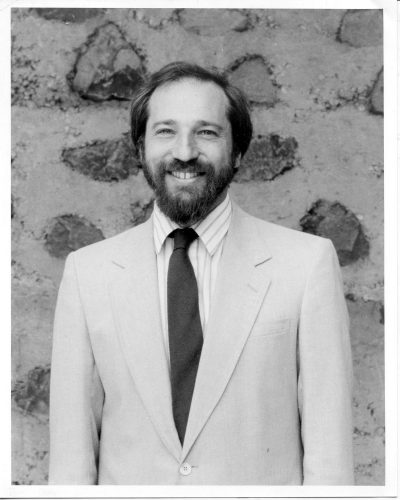
Rabbi Yitzhak Husbands-Hankin, the retired leader of Eugene’s Temple Beth Israel, may be alive today because he overslept on Saturday.
Husbands-Hankin was visiting the Squirrel Hill neighborhood of Pittsburgh — his hometown — on Saturday, Oct. 27, and had planned to join a morning service at Tree of Life synagogue there. That’s the service where a gunman with an AR-15 rifle opened fire on the congregation, killing 11 people and wounding several more, including four police officers.
Squirrel Hill is where the rabbi grew up and lived before moving to Eugene in 1971, he said in a telephone interview Oct. 30 from Pittsburgh.
Husbands-Hankin and his wife had stopped there to visit friends and family on their way to a conference in Toronto. He especially wanted to see a longtime friend, a chaplain and nurse who is a member of the Dor Hadash congregation, one of three Jewish groups that share space at the synagogue.
Husbands-Hankin led a Friday night service for the congregation at the synagogue, the day before the attack. “Friday night was such a high for the congregation,” he said. “And 11 hours later it turned into a nightmare.”
Oddly, Husbands-Hankin was having a nightmare about a shooting when he awoke Saturday morning. He is completely amazed at the coincidence.
“Dreams are deeply personal,” he says. “And yet it was so connected. I never dream about shooting. But I dreamed that somebody was trying to shoot us.”
In his dream, he wasn’t in a synagogue, but in a store, where people were trying to barricade themselves against a shooter headed their way.
Then he awoke and saw the clock. 10:07. “Oh, they started at 10 o’clock. I’m late,” he thought.
Before he was fully awake, the telephone rang. “It was my friend’s wife telling me there’s an active shooter.” She told him not to go to the synagogue. He did anyway.
“I went to the perimeter and heard rapid fire. I don’t know if it was from the police or the shooter. The police were really keeping people back.” He and about 10 other people at the intersection were told to shelter behind stone buildings. “There seemed to be some moments when they thought there could be danger.”
All the while he stood on the street, Husbands-Hankin was worried about his friend the chaplain. “My whole being had a deep concern and hoping that my friend and other people would be OK.”
The friend wasn’t. Wounded in the chest, he had already had surgery.
“I went to the hospital right away,” Husbands-Hankin says. “And there we were in the waiting room. That’s pretty much where I stayed the next couple days.”
The friend — Husbands-Hankin declined to identify him — is recovering, the rabbi says, but it’s touch and go. “I was supporting his wife,” he says. “I hope effectively. But I was also needing support myself. I did get to see him and spend some special time with him.”
Since the attack, Husbands-Hankin says, life has been suddenly fluid. “Time is not linear in any way that I recognize right now. Every day has its own quality.”
We asked about the greater political context of the shootings, particularly President Donald Trump’s planned visit to Pittsburgh.
“There is a real need for him to take responsibility for the views he helped cultivate,” the rabbi says of Trump. “He has a lot of work to do.”